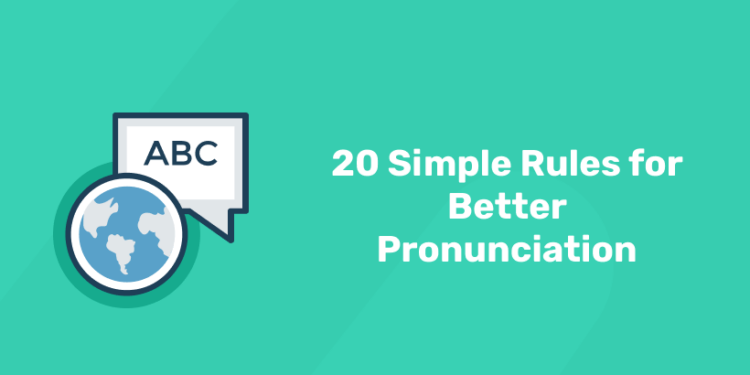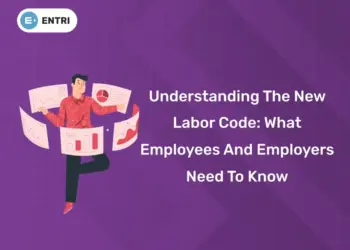Are you an enthusiastic language learner? Are you trying to learn the pronunciation of English words step by step?
Are you confident speaking in front of an audience?
While learning a language, you need to give more importance to pronunciation. Pronunciation of any language is the most standard way in which a word is spoken. Based on the way of talking, the pronunciation may differ. Standard pronunciation is always regarded as the key to dealing with a language smoothly.
The English language shows its nuances through pronunciation. The pronunciation rules are difficult to tackle. The English pronunciation rule puzzles both native and non-native speakers. The difficult pronunciation rules can be learned easily if you find the best source and guidance. The Entri team can help you to guide through the pronunciation rules.
Some pronunciation rules should be memorized. Some words’ pronunciation in English comes in handy. While some others need to be thoroughly practiced.
Learn Spoken English with Expert Mentors! Enroll Here!
20 Rules for Better Pronunciation
Here are the twenty English pronunciation rules that can help you to learn better. As pronunciation is an inevitable part of English learning, one needs to pay attention to pronunciation to a greater extent.
- Double consonants should be pronounced as a single letter. The occurrence of the double letters close by close won’t bring any change in the pronunciation. They are just pronounced as single letters. In English, the occurrence of the letters like ss, ff, rr, pp, zz, ll, dd and cc can be pronounced as a single letter. For instance, be careful with the pronunciation of words like buzz, occur, batter etc
- Pronunciation of double TT as D. Be careful while you pronounce the double TT in a word. The double consonant TT while pronounced will be reduced to somewhat the d sound. It is not pronounced as a single letter as in the case of other letters.
- Short words possess short vowels.The vowels in English can be classified into long and short vowels. Short words in English words consist of short vowels. The presence of short vowels can easily be identified in short words. They usually consist of two or three letters and will be visibly short. For instance, cat, mat, lit, dot etc
Learn Spoken English with Expert Mentors! Enroll Here!
- The existence of two short vowels side by side can give birth to a long vowel. The trick can be easily understood. The existence of the two short vowels side by side makes a long vowel sound. When there are two different vowels beside each other, they generally make the long sound of the first vowel. For instance, the word meat, goat etc have a long vowel sound.
- The E at the end of the word falls silent every time. If the word in English ends with an e, make sure you are not pronouncing it. Non-native speakers always tend to pronounce e in ate, rope, hope etc.
- The pronunciation of C should be considered. Make sure you pronounce the letter C in words followed by I, E or Y as an S sound. For instance, mind the pronunciation of the words like cite, cycle, cyber, century etc.
- Mind the words ending with the letters TION. It is the most tricky word ending. The words ending with TION should be pronounced with a prominent SH sound. The words like situation, relation, tradition etc are examples.
- When the letters G and K appear before the letter N in the beginning position of a word, it should be treated as silent. When a word starts with K or G followed immediately by N, the K or G in the word should remain silent. The pronunciation of the word should start with the N sound. For instance, the words like Knee, Knock, Know, Gnome, gnarl etc
- When the letter S appears between two vowels make sure to pronounce it as a Z sound. There are several exceptions to the above-mentioned rules. In the words like phase, please etc the letter s is pronounced with a voiced Z.
- Before a stressed syllable when the letter X appears, pronounce the letter with the GZ sound. When the letter X comes in front of a stressed syllable, it should be pronounced with a GZ sound. For instance, exist, exo, expo, examine etc
- When the letter X appears at the beginning of any words, pronounce it as a Z sound. For instance, look at the words like xenophobia where the word starts with the pronunciation Z sound.
- The pronunciation of NG should be carefully considered. It sounds as if two words are connected. The combination makes a unique sound. Try pronouncing the words thing, bring, being, king, wing etc. There is an exception to this rule. The pronunciation of both words can be distinguished in the words like hunger, longer, finger etc
- Mind the pronunciation of unstressed vowels. The unstressed vowels tend to be pronounced with the SCHWA sound. The unstressed syllables in the words are reduced to schwa sounds as in freedom, mitten, kitten etc
- Mind the pronunciation of the past tense of words. The past tense of not all words is pronounced with a D sound. If the word ends with consonant sounds like b, v, n, m, g, l etc the pronunciation ends with a D sound. The words ending with ed are always pronounced as a T sound.
- In some cases, when the word begins with the letter H, we won’t pronounce it. The H will remain silent. For instance, look at the case of the hour, honor, honored, honorable etc.
- When followed by K you need to pronounce OO with a short U sound. This is an exceptional case, in most cases, it is pronounced with a long U sound. But there are also instances where one should be aware of long OO being pronounced as short U as in the case of a book, hook, look etc.
- In a stressed syllable, when a long E appears after the letter C, make sure to pronounce it as an EI sound. For instance, in words like fancies, receive, perceive etc where the long E sound comes after C. The following words can be pronounced as EI sound.
- The TH in certain words can be both voiced and voiceless. The TH sound is voiced in the words like they, them, then etc. The TH can be voiceless in words like cloth, broth, thick etc.
- Mind the pronunciation of L. The letter L can have two pronunciations namely dark L and clear L depending upon the position of the syllable. When the letter appears at the end of the syllable L become dark. As in the case of pull, hill, milk etc the L is pronounced as dark L. The pronunciation happens when the back of the tongue is raised.
- When you give stress on the first syllable, the word turns itself into a noun. If the word is in noun form, the stress will immediately fall on the first syllable. When you give stress to the last syllable, it will automatically change itself to verb form. The same word produced can act both in noun form and verb form depending on the pronunciation. When you give stress to the first syllable of the word PRODUCE’s PRO it will act as noun form while you give stress in the last syllable DUCE, it will have a verb form.
If you wish to improve the quality of your spoken English, find the best learning solution. Entri App is offering immense possibilities to people across the globe to learn English better. Enroll Here!










